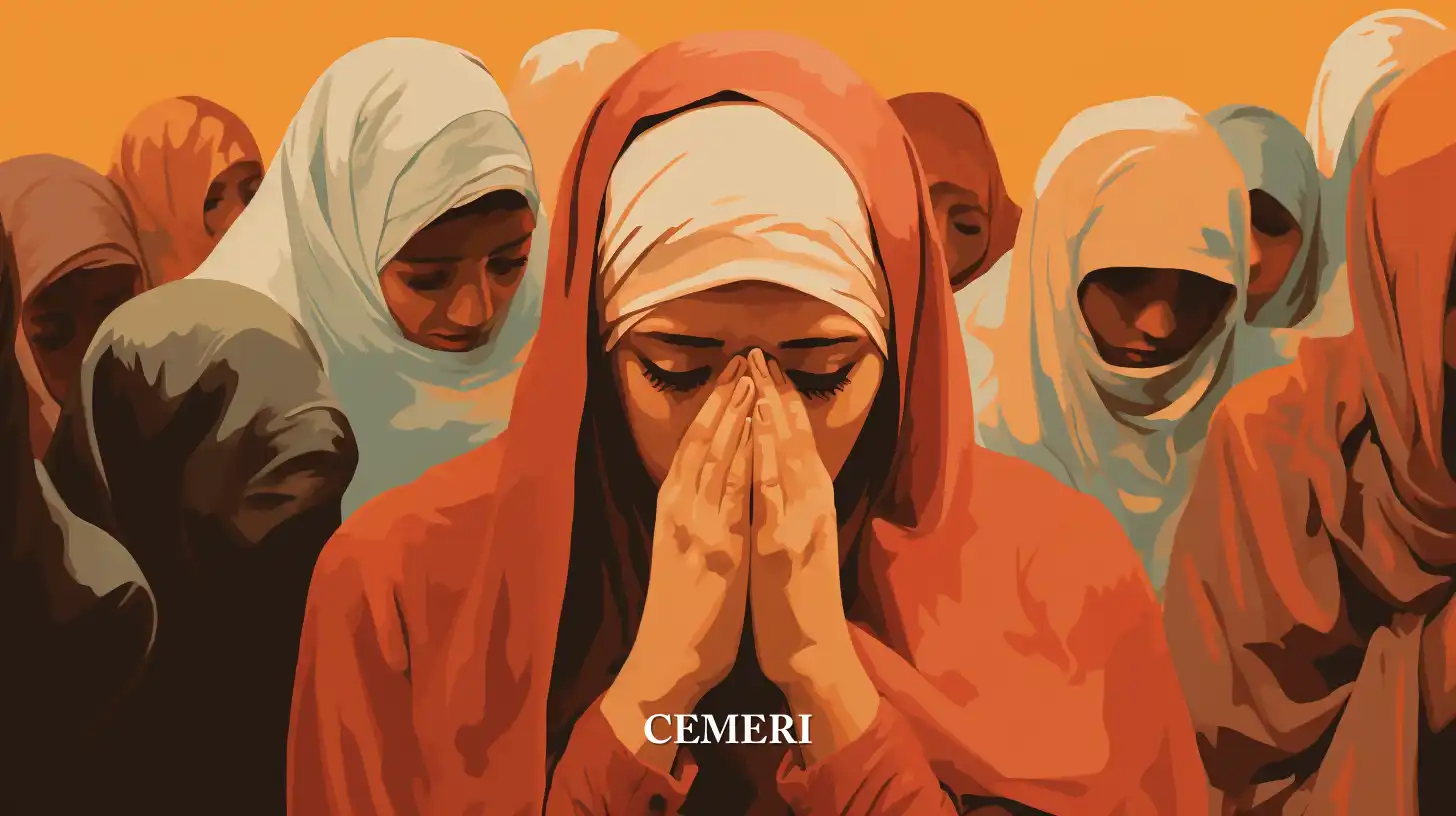Encyclopedia
CEMERI
What is populism?
- The term populism has acquired different meanings and definitions over time.

The term populism has acquired different meanings and definitions. For some political scientists, it is even a term that lacks intrinsic value (Guy Hermet 2003, 6). Ernesto Laclau was one of the many theorists who linked the idea of populism with the notion of the people (Martín Retamozo 2017, 132), thus implying their active participation in political processes. This popular contribution becomes the counterpart, the antagonistic character of the ruling class (Laclau, 1978). On the other hand, Gino Germani considered that populism was a form of authoritarian domination that incorporated the excluded, that is, all the people, into politics. (2012)
Likewise, Gastón Souroujon (2020) traces the first antecedents of populism in those social movements at the end of the 19th century; whom he calls pre-populists. Souroujon observes that, from that moment on, the notion of the people was fundamental to understanding modern politics. The term implies, then, creating new political and economic pacts, that is, constituting a pact of domination. (Brachet-Márquez 1996) Political actors need various means of political representation that guarantee their permanence in power. (González 2007)
Therefore, it can be assumed that populism is a new way to build the political: a proposal where the people (understood as various social groups that had been marginalized from the sphere of power) actively participate in public political life. In this way, a new form of social articulation is built, as well as a new political subjectivity among popular groups.
Although it is a term that has been used interchangeably in various regions of the world, it is necessary to point out that the experiences of populist governments in Europe are far from those in Africa, America or the Asian continent.
Populism in Latin America
The notion of Populism has been widely used in the Latin American context, especially to designate those governments considered "left" or even for which the notion of popular sovereignty constitutes an important basis.
Many specialists from the Economic Commission for Latin America and the Caribbean (CEPAL) appropriated this concept and used it to designate the nationalist political processes that, allied to trade union organizations, promoted industrial development. The cases of Juan Domingo Perón in Argentina, Getulio Vargas in Brazil and Lázaro Cárdenas in Mexico are inscribed in this line. (Gaston Souroujon 2020)
For the Brazilian case specifically, during the sixties populism was directly or indirectly related to Marxist ideas (María Cecilia Ipaar 2019). During these years, these governments were characterized by boosting the middle classes, the minimum wage rose and the labor union organizations were strengthened. In very specific cases, the leaders also promoted agrarian reforms. (Carlos de la Torre 2013)
In Latin America, the idea of Populism was used in the public sphere -not only academic- with greater zeal from the second half of the 20th century, however, from the beginning of the 21st century, the term had an evident boom due to its frequent use to address and explain the Latin American sociopolitical reality. It was in these years when the South American countries experienced agitated social mobilizations and new actors appeared on the political scene; indigenous peoples, student groups, feminist movements, labor movements, among others.
In recent years, the term has been used to address events such as the governments in Venezuela, Argentina, Bolivia, Ecuador and Brazil considered populist due to the social origin of the political leaders. The case of Hugo Chavéz in Venezuela is a fundamental example. Even the Mexican government, of the current president Andrés Manuel López Obrador, is considered a popular government.
Populism in the rest of the world
Although it is in the Latin American region where this concept has had the most echo, populist projects can also be traced in the rest of the world. It should be noted that its use was not so frequent and that in many cases it acquired a negative view. An example of this is the definition that Stuart Hall proposed to the Thatcher government, calling it “an authoritarian populism”. (Stuart Hall 1990)
On the other hand, Hugo Antonio García Marín rescues two experiences in the Asian continent; on the one hand, the government of Thaksin Shinawatra in Thailand and, on the other, that of Roh Moo-Hyun in South Korea. (2018). Although the figure of Thaksin Shinawatra does not share similarities with some Latin American leaders, he began his political career as a businessman and gradually approached the popular classes; His government had a direct relationship with the population of rural and urban areas. In the South Korean case, Roh Moo-Hyun has bases in the popular classes, he began in politics as a lawyer and later became involved in different social movements. His charisma endowed him with strong support from the people.
Criticism of populism
Regarding populism, there are criticisms that permeate the academic and political scene, from the personalism that the projects have taken to the discussion of whether or not a true social change has been generated. Populism is questioned a lot for having economic policies almost opposed to neoliberalism. For many political scientists, their approaches do not respond to the reality of a globalized world and only isolate the countries that follow these models.
In the Latin American case, populist governments fell into public discredit and the opposition even considers them a danger to democracy, since there is a belief that this system can lead to the creation of authoritarian regimes (Carlos de la Torre 2013). For Dory Luz González Hernández, the problem with these governments is that political figures assume a central role that can often weaken the structures of democracy. (2015)
The new path of populism?
At present, the paths taken by populist governments, at least in the Latin American case, are under debate. For some theorists, the proposals in Venezuela, Colombia and even Bolivia have lost legitimacy, ceasing to be viable models to achieve social change in the region. The big question that remains in the air is the direction they are going to take, what new figures will prevail and how the great economic crises that are affecting the American continent today will be handled.
Sources
Hermet, G., (2003). El Populismo como concepto. Revista de Ciencia Política, XXIII(1), 5- 18.
Retamozo, Martín. (2017). La teoría política del populismo: usos y controversias en América Latina en la perspectiva posfundacional. Latinoamérica. Revista de estudios Latinoamericanos, (64), 125-151. https://doi.org/10.22201/cialc.24486914e.2017.64.56836
Retamozo, Martín. (2017). La teoría del populismo de Ernesto Laclau: una introducción. Estudios políticos (México), (41), 157-184. Recuperado en 03 de julio de 2023, de http://www.scielo.org.mx/scielo.php?script=sci_arttext&pid=S0185-16162017000200157&lng=es&tlng=es.
Reveco, Juan. (1992). Un repaso a las teorías sobre el populismo latinoamericano. POLÍTICA No. 30, pp. 177-193
Souroujon, Gastón. (2020). Las definiciones mínimas de populismo. Problemas y potencialidades. Pilquen, vol. 24, No. 2, pp. 1-12. Recuperado de: https://dialnet.unirioja.es/servlet/articulo?codigo=8297170
Brachet-Márquez, Viviane (1996). El pacto de dominación: Estado, clase y reforma social en México (1910-1995). México, El Colegio de México.
Gonzales, O., (2007). Los orígenes del populismo latinoamericano. Una mirada diferente. Cuadernos del CENDES, 24(66), 75-104.
De la Torre, Carlos. (2010). ENTREVISTA Carlos de la Torre. Populismo y democracia Cuadernos del Cendes, 27(73), 171-184. Recuperado de http://ve.scielo.org/scielo.php?script=sci_arttext&pid=S1012-25082010000100007&lng=es&tlng=es

